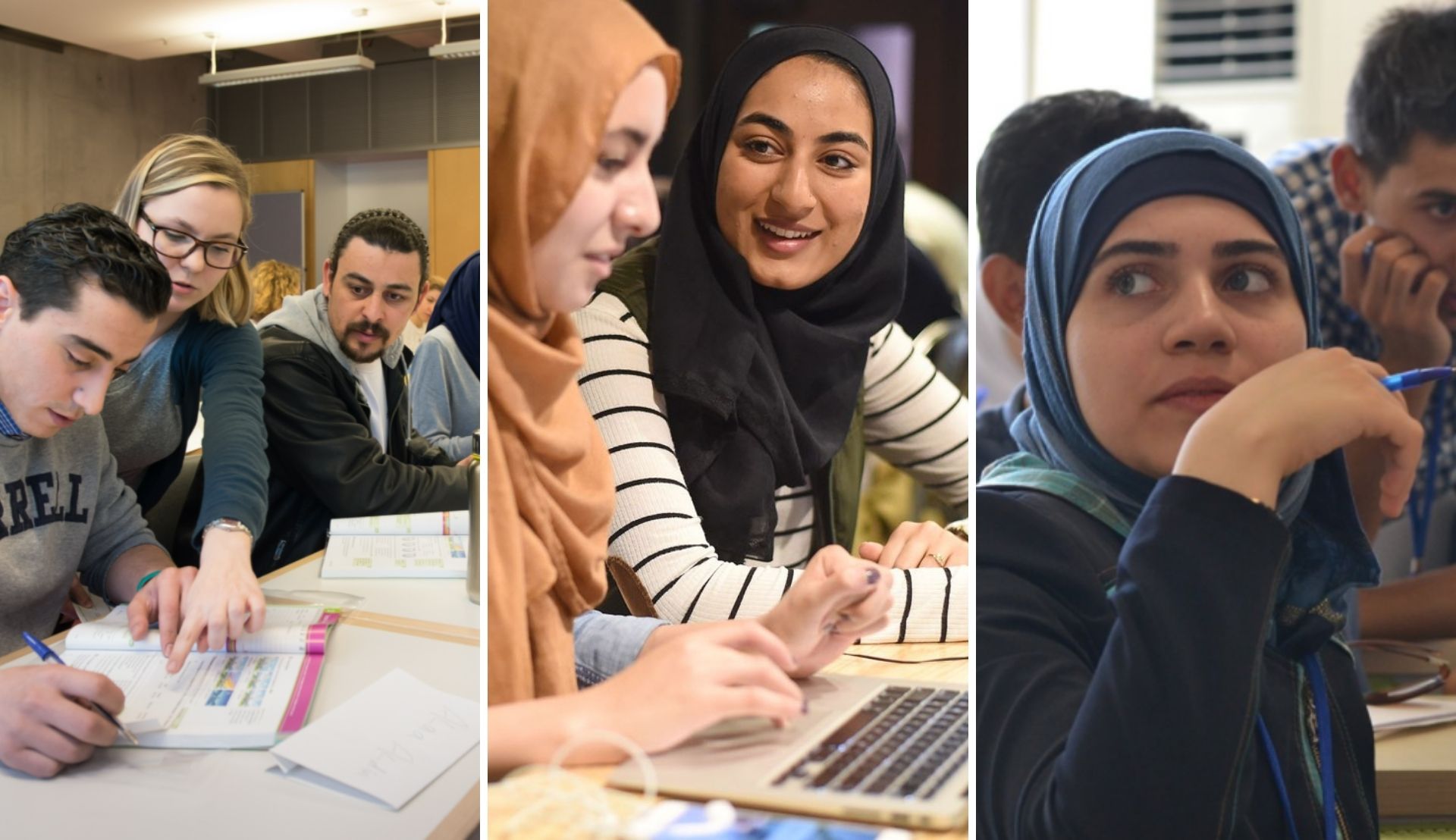On April 22, Rutgers Global convened a virtual panel to discuss the pivotal role of higher education institutions with regard to refugee and displaced students and scholars, particularly in the wake of the recent crises in Afghanistan and Ukraine as well as the looming challenges of climate change.
The panel was comprised of key figures in government, non-profit organizations, higher education institutions, and NGOs, including the United Nations High Commissioner on Refugees (UNHCR), Institute of International Education (IIE), U.S. Department of Homeland Security, American Council on Education (ACE), U.S. Department of State, Association of Public and Land Grant Universities (APLU), NAFSA, and the Presidents’ Alliance on Higher Education and Immigration. (View the full program here.)
Eric Garfunkel, Vice President for Global Affairs at Rutgers University and Director of Rutgers Global, opened the event with welcoming remarks and served as moderator for five panel discussions, along with Anu Gupta, Assistant Dean for International Academic Support, who organized the event. Dr. Garfunkel noted, “One of the goals of today’s event is to reflect on how we might build on best practices and create more sustainable ways in which higher education can have a positive impact on the predicament of student and scholar refugees.” He introduced Jonathan Holloway, President of Rutgers University, who offered introductory remarks.
Dr. Holloway talked about the history of Rutgers as a welcoming place for displaced and refugee students and scholars, and recounted the 1956 Hungarian Uprising, when 200,000 fled the country to escape Communist rule and 32,000 of them came through Camp Kilmer, which is now part of Rutgers’ Livingston Campus. This effort was led by a Rutgers graduate student. He added that this year, Rutgers has worked to support Afghan and Ukrainian refugee students and scholars, and talked about the goal of creating a holistic response to supporting displaced faculty and students by creating a supportive environment and engaging with the wider community.
The first panel was on the topic of global understanding of forced displacement, and included Rosie Hughes, Refugee Pathways Expert at the UNHCR; Allan Goodman, CEO, IIE; and Susan Martin, Professor Emerita of International Migration at Georgetown University. Hughes framed the global challenges and opportunities and provided the current estimate of forcibly displaced people, which is now at 82 million. Hughes also discussed the difference between refugees (those forced to flee their country and unable to be sent back to their home country, and protected by international law) and migrants (those who choose to leave their country, and may or may not return), as well as the main priorities of the UNHCR, including the recently signed Global Compact on Refugees and the 15 by 30 initiative, which seeks to ensure that 15% of refugees will have access to higher education by 2030.
The second panel was on the topic of federal response to refugee and humanitarian crises, and included Adam Hunter, Deputy Assistant Secretary, Border and Immigration at the U.S. Department of Homeland Security; Rosanna Kim, Senior Advisor, Bureau of Population, Refugees, and Migration at the U.S. Department of State; and Sarah Spreitzer, Assistant Vice President at ACE, who liaises with Congress on immigration. Kim talked about how, in the wake of the Afghanistan crisis, more than 80,000 Afghans were resettled in the U.S.--an unprecedented number. She remarked that the higher education community is an increasingly important actor that is “stepping up” to help with these crises. Kim talked about a new private sponsorship program that is being launched by the State Department and is linked to higher access for refugees.
The third panel, about promoting access to opportunity, was moderated by Laura Wagner, Project Manager, Presidents’ Alliance on Higher Education and Immigration, and included Susan Liu-Hedberg, Acting Program Officer, Open Society Foundations; Sarah Willcox, Deputy Director, Scholars at Risk; Arezo Kohistany, Managing Director, Afghan Future Fund; and Jennifer Dwyer, Senior Technical Manager, Education Above All. Some takeaways from this discussion included the need to expand multiple pathways, the importance of networking and coordination, and the crucial role of engagement and investment from communities.
The fourth panel was on the topic of structures and support networks for students and scholars and was moderated by Bernard Burrola, Vice President for International, Community, and Economic Engagement at the APLU. The panel featured Nicole Tuszynski, Associate Director, New University in Exile Consortium, the New School; Jennifer Murray, Dean of International Studies, Bard College; Tina Marie Serra Joaquim, Manager of Career Services and International Programs, Bard College Berlin; and Kurt Richter, Professor, Department of Sustainability, Michigan State University who were all able to talk about the different models of international higher education institutions as pathways.
The final panel on looking ahead and sustainable solutions was moderated by Dan Berger, leading immigration lawyer and Partner at Curran, Berger & Kludt, LLP, and included Miriam Feldblum, Executive Director of the Presidents’ Alliance on Higher Education and Immigration; Heather Stewart, Counsel and Director of Immigration Policy, NAFSA; and Kyle Farmbry, formerly professor at Rutgers University, and now President of Guilford College. Stewart talked about the need to “meet the moment, and exceed the moment,” and of the critical importance of predictability on government policies. Farmbry talked about the importance of engaging student voices to tell the story of the refugee in a compelling way. Berger agreed that these stories are key to supporting advocacy for refugee students and scholars.
The virtual event ended with Dr. Garfunkel offering the opportunity for a few of the refugee students and scholars in the virtual audience to speak to the group, and Sanaa Talwasa, Hussain Saifnijat and Suraya Pakzad, all recent Afghan refugees, spoke.
Here is a link to the video playlist of the virtual panel event, “Higher Education Response to Refugee and Displaced Students and Scholars: Toward Sustainable Solutions:

